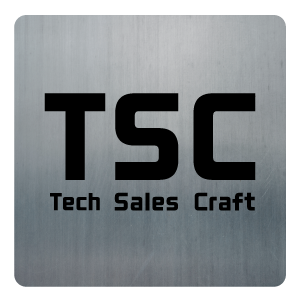Networking Certs can be super helpful for people looking for their first NetOps roles. Here are some quick hits on lessons learned and things to consider regarding pursuit of networking certs.
(0) Start somewhere
-
Take that first step and overcome any personal momentum of a “body at rest”
-
We live in the most information-rich and -accessible environment ever – there are so many ways to get started
-
YouTube is one of my favorite sources for quick info on tech topics
-
For anyone in networking, knowing how ethernet, IPv4, and IPv6 work are good starting points
-
Some people like pure theory and vendor-independent training as a starting point, but you can get those details in vendor courses; as a bonus, it will prevent you from thinking that “The OSI Model” is how things are actually implemented 🙂
(1) Know your network environment
-
Focus on products and technologies you’ll likely work with
-
If you don’t have a specific network environment to target, you can go with an entry level cert from most of the main network equipment vendors; I have direct experience with Cisco and Juniper certifications and can recommend them both as good places to start, but they are certainly not the only good places
(2) Study and lab primarily for knowledge and skills, not primarily for certs
-
Yes, I just used “lab” as a verb
-
It’s easy to chase after a cert for cert’s sake; I am guilty of being motivated early in my career primarily by just getting that next CCNx, JNCIx, XYZx, etc.
-
In the long run, it’s the real knowledge and skills (whether or not there is a cert associated with them) that will actually help you do your job
(3) You will eventually fail at least one cert exam
-
And that’s ok
-
When it happens, make the most out of it – spend time to figure out what you did wrong and learn from it
-
See above re: Study and lab primarily for knowledge and skills
(4) Get some cloud networking skills
-
Even if you are primarily a “trad” network engineer, and even if cloud is not part of your initial/current environment, you will benefit from basic cloud networking skills
-
Both traditional networking and cloud networking skills are important – knowing how to interconnect them can be a super power
(5) Think about Network Automation from the beginning of your journey
-
This might seem overly complex, but if you keep network automation in mind from the start, you’ll be able to do things via CLI (the “old fashioned way” according to some) and via APIs (the “new hotness”)
-
Basic skills in python and Ansible are great places to start with Network Automation
-
Shameless plug: see all the material available from NAF to give you some starter ideas
(6) Virtual labs are great for many/most things – but get some hardware experience if you can
-
Virtual labs focus on the control plane but don’t exercise the forwarding plane much/at all
-
Buying gear for a home lab can be expensive
-
Seek out ability to get access to a company lab, or even start a company lab
-
Study groups that share gear can also be helpful (more on groups below)
(7) Things get weird at large scale
-
Race conditions, table space limits, and other stuff you’ve never seen (or at least will never see in a home lab or a virtual-only environment)
-
Sometimes they are bugs, sometimes just unexpected behavior
-
And this is isn’t just for hyperscalers and service providers; it’s a function of the logical complexity of your network
(8) Training tells you expected behaviors; Operations shows you reality
-
I saw this up close going from a Training role to a TAC engineer role
-
What happens when things break is a whole other level of education
(9) Don’t be afraid to ask questions
-
You’re LEARNING!
-
If you have a question, others probably do too
-
Drop the “flame war” mentality – it’s not constructive; not as much of a problem today, but still beware of it
-
Leaders: continually cultivate and support an environment where asking questions is encouraged
(10) Study groups can be super helpful
-
Check out what Andy Lapteff is doing!
-
A study group can be smaller group where you’re comfortable asking questions – with perhaps a lower risk of embarrassment (if you are concerned about that)
-
They also help with accountability, faster answers to questions, and…
(11) Find ways to make studying and labbing fun!
-
Getting through the stuff you like is easy – fun incentives can really help thru the hard stuff
-
You can give yourself incentives to get thru a certain number of pages, modules, lab activities, or anything else that you think will motivate you
-
In study groups, you can also find ways to create friendly competition
We will do future TNOps episodes on training, certification, and building useful skills for people looking for their first NetOps roles. Be sure to tune in!

